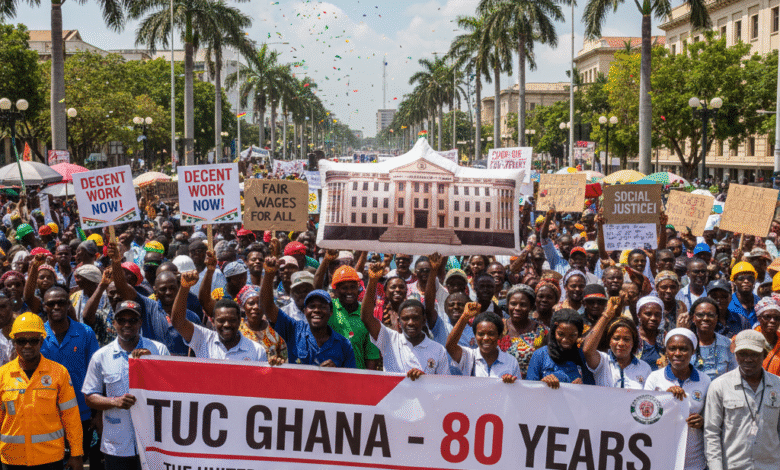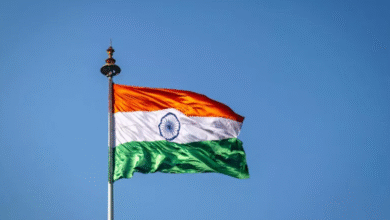TUC @ 80: Eight Decades of Workers’ Struggles, Sacrifices, and Nation-Building

From the nurse pulling long shifts in a public hospital, to the teacher managing overcrowded classrooms, the factory hand on the production line, and the trader braving the sun in Makola, the story of Ghana’s progress is also their story.
For 80 years, the Trades Union Congress (TUC) Ghana has carried these voices, fighting for dignity, fair wages, and justice in the workplace. By doing so, it has also helped stabilize the national economy, ensuring that growth is tied to the welfare of its people.
A Union Born in the Fight for Independence
Founded in 1945, at the height of colonial rule, the TUC became more than just a workers’ movement. It aligned with Ghana’s nationalist struggle, making the call for fair wages and conditions inseparable from the demand for independence. By giving workers a collective platform, the TUC contributed to building the social foundation for Ghana’s eventual economic self-determination.
Defending Workers Through Changing Times
Through coups, economic downturns, and democratic transitions, the TUC has remained a bulwark against exploitation. Its successful wage negotiations and reforms have kept household incomes afloat during tough times, sustaining consumer spending that drives Ghana’s domestic economy. By pushing for pension reforms, the TUC has also ensured that workers retain purchasing power even in retirement, a critical stabilizer in periods of economic turbulence.
A Broad Base of Representation
With 24 affiliate unions spanning agriculture, industry, health, education, transport, and the informal economy, the TUC represents the backbone of Ghana’s workforce. By bringing informal workers into the fold, the Congress has helped extend social protection and financial inclusion to the majority of the labour force, ensuring that economic policies do not only benefit the formal sector. This inclusivity has deepened Ghana’s human capital base, a key driver of long term growth.
Beyond Wages: Building Social Protection
The TUC has fought for more than salary increases. Its advocacy in pensions, healthcare, and education has reduced the vulnerability of working families, enabling them to invest in their children’s future and contribute productively to the economy. At the policy level, social protection measures pushed by the TUC have served as buffers during inflationary shocks and economic crises, preventing a collapse in living standards.
Global Partnerships, Local Impact
Through partnerships with the International Labour Organization (ILO) and the International Trade Union Confederation (ITUC), the TUC has secured global solidarity for Ghanaian workers while aligning local standards with international norms. These collaborations have boosted investor confidence by demonstrating that Ghana respects labour rights, a factor that enhances the country’s attractiveness for foreign direct investment.
Current Struggles and Future Goals
Yet, the economic challenges facing workers remain urgent. Unemployment, low wages, and high living costs continue to erode the livelihoods of millions. In a message issued and signed by its Secretary General Comrade Joshua Ansah, the Congress pledged, “we will intensify our advocacy for living wages, economic justice, and inclusive development that leaves no worker behind.” For the wider economy, this means pushing for wage and labour policies that stimulate productivity, domestic consumption, and social stability.
A Vision for the Next Decade
Looking ahead, the TUC’s vision is clear: to build a labour movement that is inclusive, resilient, and future ready. By embracing technology, promoting skills training, and ensuring fair workplace transitions in the digital age, the Congress is preparing workers to drive Ghana’s growth in the decades ahead. Crucially, it insists that development must place people at the centre, not just profit.
Eighty years on, the story of the TUC is not just the story of an institution. It is the story of the Ghanaian worker’s sacrifice, struggle, and service in building the nation




